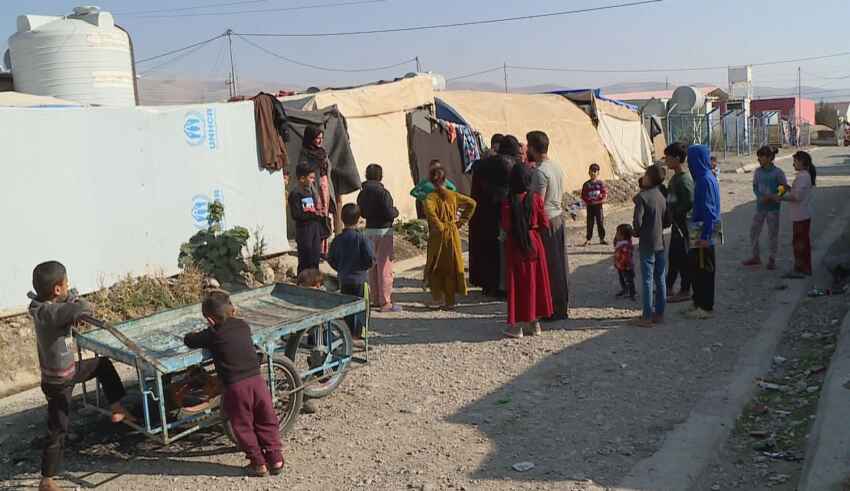
According to research findings presented in a meeting of the United Nations Security Council in August of 2018, more than 40,000 foreign citizens from 80 countries have been associated with Da’esh between 2014 and 2018. Among them, 13 per cent are women, and 14 per cent are children, which means that 1 out of 4 Da’esh affiliates are women and minors. In addition, UNICEF estimates that 28,000 children across 60 countries are trapped in displacement camps in Iraq and Syria. 80 per cent of these children are under the age of 12 and half are under the age of five. Most of them were either born in places controlled by ISIS or travelled with their parents, which moved to these areas to fight for the Islamic State.
The conditions within the displacement camps are dire; children do not have the basics, like food, clean water, sanitation, and medical care. They also lack access to education and other basic rights and services. Violence is a serious problem, while inhuman treatment is an everyday situation for these kids. Furthermore, research has shown that these camps promote violent extremism and radicalization, aiming at the recruitment and the use of children as soldiers.
Although the situation should raise concerns for the international community, many Western European countries, like Denmark, the UK, France, and Belgium have failed to protect these children and establish legal mechanisms to ensure their repatriation. In France, the Conseil d’Etat turned down repatriation claims, arguing that such an action would require intervention in a foreign territory, while the Belgian Appeals Court decided that Belgian authorities have no obligation under the law to repatriate the children and their mothers. This judgment annulled a decision by a lower court, which ruled the return of these kids back home.
Central is the issue of establishing the nationality of these minors. Most of the time, children born in conflict areas do not have birth certificates or receive some kind of birth registration from non-state actors, which usually gets lost or destroyed. The lack of documentation put these children at risk of statelessness. Even if they get repatriated, the lack of nationality proof will impede their quick and smooth integration. Such an example is some French minors that were repatriated to France and received “temporary civil status” until their nationality was confirmed through DNA testing. Also, the discriminatory nationality laws of certain countries may raise the risk of statelessness for the children born in conflict areas by fathers who served as foreign fighters and are now deceased or detained.
According to the Convention on the Rights of the Child, the right of children should be protected under all circumstances, while countries have the obligation to safeguard their rights to birth registration, names, and nationality. As a result, it has been argued, that under the Convention, states of nationality should protect children by repatriating them. Although the law is still unclear on this issue and there are many legal technicalities, the international community should prioritize the safety and well-being of the children and protect their rights by all means.
By The European Institute for International Law and International Relations.













